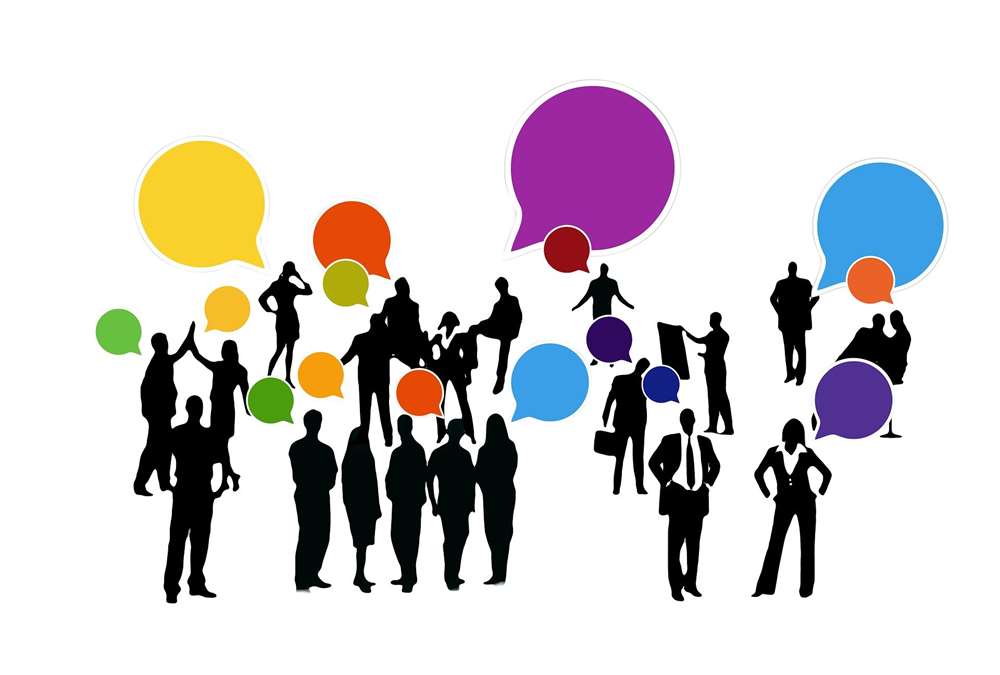- Home
- Business Processes
- Industry Knowledge
- Aerospace Industry
- Automotive Industry
- Banking Domain
- BFSI Industry
- Consumer/ FMCG Industry
- Chemicals Industry
- Engineering & Construction
- Energy Industry
- Education Domain
- Finance Domain
- Hospitality Domain
- Healthcare Industry
- Insurance Domain
- Retail Industry
- Travel and Tourism Domain
- Telecom Industry
- Leadership Skills
- eLearning
- Home
- Leadership
- Team Leadership
- Effective Business Communication
Effective Business Communication
Communication is all about getting the message across correctly. To make this happen, you need to have good speaking skills and good writing skills. If you have these skills coupled with good listening skills and interest in reading, you have all the potential to be a good communicator. What things should the leader take into consideration to be more effective with interpersonal communication?
What is communication? It is not simply the transferring of information, but rather its conversion into understanding. Communication is derived from the Latin “communicare”, meaning to impart, share, or make common. Communication is a two-way process (sender – recipient) of reaching mutual understanding, in which participants not only exchange (encode-decode) information but also create and share meaning. In most organizational surveys, communication often rises to the top of issues that prevent teams from being highly effective. Regardless of what level you are, your ability to communicate both on a strategic and interpersonal level will allow you to be more effective as a manager, as well as help you to develop the other desirable qualities.
Setup Rules from Beginning
Set up rules of engagement from the start. Create a Routine by defining a communications strategy. Ensure you convert the communication strategy to a detailed communications plan. Review effective communication strategies and techniques to ensure the free flow of information and ideas within your team, Initiate schedule management (project plan) using communication tools & documents. A good, solid communication plan includes elements of both. Sending includes one-way methods, such as email and intranet, that are good for quick, broad distribution of news and other information-sharing--when you want employees to just be aware of something new. Listening involves a two-way dialogue, such as holding team meetings or Q&A sessions. These are particularly effective if you want employees to change behavior or get involved in something. The more change you have going on in the business, the more consistent, two-way communication you'll need! Simple, repetitive messages are key to effectiveness.
Communication as a Link
Employees are a critical link between customers and our business. Employees having a strong understanding of the business and its key goals are important because they are the critical link and the “front line” between business and customers. What is the impact on the customer (internal or external) if employees are not getting enough strategic communication? What if they’re not getting enough interpersonal communication?
Speaking About Oneself
If you are professional, you will be often required to speak about yourself, both at formal and informal occasions. Depending on the occasion and the mood of the person(s) to whom you are speaking, you should be able to make changes to what you want to speak. Watch the reaction and body language of the person(s) carefully to check if they are getting irritated or bored. In that case, take an on the spot decision and change your script.
Facilitator of Understanding
Employees don’t just want MORE communication…they want to know HOW the key messages affect them. Therefore, it is critical for a manager to effectively “translate” or interpret messages for employees. Your role as a manager in this communication process is not simply to relay information but to facilitate the process of understanding. Employees don't just want more communication; they want to know how it affects their particular situation and how they can use that information to better do their jobs.
Take Care of Your Body Language
Which form of communication is most important? While speaking, how you present yourself is most important. Your dress, your posture, movement of your body parts, eye contact, and facial expression: you need to get all these rights. There is no standard prescription for any of these. You will need to decide the "hows", taking clues from the person(s) to whom you are making your speech. Another important point is that your dress should be appropriate for the occasion. We should not only be cognizant of the words that we use to communicate, but also the body language and tone in which we do it. Surprisingly, WHAT you say is actually far less important than how you say it.
Tips for Effective Speaking
- Understand who the audience is
- Prepare your speech keeping in mind the educational level of the audience
- Prepare well and ensure that you have included everything that you wanted to include
- Rehearse your speech in front of a mirror or with a friend and incorporate any suggestion
- Use simple language and short sentences using words you are familiar with
- Keep the structure simple and logical and go with total confidence
- Speak clearly and loudly, don't mumble, and don't speak too fast
- Repeat important messages to make sure that everyone has understood it
- Summarize at the end, if the situation warrants
- Watch the reaction and body language of the audience from the beginning
- In addition to new activities, be sure to also include what you’re already doing…build upon what works for your station/group.
- Schedule a meeting and talk with your team – what information or insight do they want to know? What could you do more of/less of in terms of communication?
- Value comes from execution…once the plans are made, schedule meetings immediately.
- Think about what questions would be better to ask in a group situation, and which ones to reserve for 1:1 meetings with each employee.
- The more you see interested in your employees and what “makes them tick”, the more successful you will be at earning their trust and learning how to facilitate their success
Related Links
You May Also Like
-
Listening is the foundation for good communication. It is also the hardest skill to master. Do you listen to confirm what you already know, or do you listen to explore and learn new things? How can we create receptive communication as a listener? The real art of listening involves awareness and sensitivity to the feelings of the speaker because it is at the feeling level that genuine connection, relationship, and healing occurs.
-
In the field of communication studies, there are numerous models. No one model is suitable for all purposes and all levels of analysis. Some common models are known as Lasswell Model, George Gerbner Model, David Berlo Model, Shanon and Weaver Model, Osgoods Model, and Schramm Model. All these describe the four components of the communication process, namely, the source (communicator), the message, the channel, the receiver (audience).
-
Narrative leadership is interpreted as the leader who aspires to construct leadership by telling stories. Leadership is a task of persuasion, of winning people’s minds and hearts. Storytelling is thus inherently suited for the task of leadership. Learn about the narrative leadership style and how to use this style to inspire and motivate followers or to manage change.
-
Generating Ideas using Brainstorming
The brainstorming technique was developed by Alex F. Osborn in 1957 and brainstorming means where a team of members generates a large amount of alternative fruitful ideas on a specific problem without any criticism and then evaluates each idea in terms of their pros and cons. Brainstorming techniques fall into four broad categories: visioning, exploring, modifying, and experimenting.
-
Generating Ideas using SCAMPER
SCAMPER is an activity-based thinking process that can be performed by Cooperative learning. SCAMPER is an acronym that provides a structured way of assisting students to think out of the box and enhance their knowledge. This can be used in the organizational context as a technique for creative problem solving and as a toolkit to generate fresh ideas.
-
Communication has as its central objective the transmission of meaning. The process of communication is successful only when the receiver understands an idea as the sender intended it. How does a message or an idea travel from one person to another? To transmit our message, we engage in a sensitive and complex process of communication, with different elements like sender, message, channels, receiver, noise, and feedback.
-
Process & Stages of Creativity
Creative ideas do not come just like that. There is a process to it. There are a number of techniques of creativity to support the generation of ideas but the widely practiced ones are brainstorming and lateral thinking. Most innovations are not so much the product of sudden insights as they are the result of a conscious process that often goes through multiple stages. The creative process can be divided into four stages of preparation, incubation, evaluation, and implementation.
-
In its simplest sense, decision-making is the act of choosing between two or more courses of action. Decision making is a key skill in the workplace and is particularly important if you want to be an effective leader. When decisions have to be made, there are several stages that you should go through to reach a practical solution. Understand the meaning and importance of decision making and how to look at it as a process.
-
Have you ever noticed how we express ourselves or interact with each other? Have you ever wondered what communication is and what role it plays in our lives? One may wonder if communication is so omnipresent and integral to our lives, why study communication at all? We need to study communication because it is a complex process that consists of many elements and is also beset with a number of barriers and there is a need to remove the barriers so that the communication process is effective.
-
The best career choices are ones that match your values. Each person has several values that are important to him. These values are highly personal and knowing them provides a clearer sense of what's most important to you in your life and career. Career values are the beliefs you consider important from a work standpoint. Values help you understand what you want from a job? Explore a few examples of work values that can influence career path and job satisfaction.
Explore Our Free Training Articles or
Sign Up to Start With Our eLearning Courses

About Us
Learning
© 2023 TechnoFunc, All Rights Reserved










